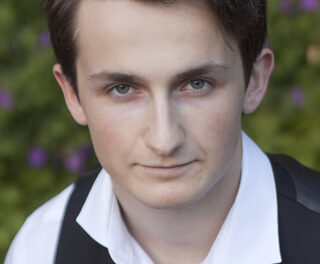Corridors of Light: Music of William Ferris: Bristol Hills, Corridors of Light, Ed È Subito Sera, & Gloria.Patricia Spencer, soprano, Kathleen Meredith, alto, John Vorrasi, tenor, Philip Skeris, bass, John Shirley-Quirk, baritone, Sara Watkins, oboe, William Ferris Chorale, Composer Festival Orchestra, William Ferris, conductor, Chicago String Ensemble, Alan Heatherington, conductor, London Symphony Strings, Arnie Roth, conductor; Çedille CDR7004, ©2010, TT 71:40, $10.
The music of William Ferris (1937-2000) is not nearly as well known as it ought to be if the works on this CD, composed in the 1960s and 1990s, are a representative sample. These world-première recordings are all live but previously unreleased performances that occurred while the composer was still living. Except for applause at the conclusion of two of them, nothing betrays that audiences were present.
Ferris’ style is modern but melodic and tonal. He is the heir of the tradition of the great English choral, vocal, and symphonic composers of the early 20th century, and hr shows the awareness and influence of the French composers of the 20s and 30s, “Les Six” et al., and of Messiaen, although he did not study with or consciously imitate any of the above. His primary teacher was organist and composer Leo Sowerby, from whom he learned on a private, informal, apprentice basis for five years after completing his studies at DePaul University. He, too, was an organist and is known to have admired the legendary French symphonic organists Widor, Vierne, Dupré, but nothing on this CD illustrates that. Like Sowerby, Ferris was based in Chicago, of which he was a native son. He formed his own Chorale which continues to perform under the artistic direction of tenor John Vorrasi. He also served as composer in residence at Bishop Fulton J. Sheen’s Rochester, NY, Cathedral, where he moved to accept that position.
The CD opener, a 19-minute Gloria, composed in 1992 for the 20th anniversary season of the Chorale, is very much in the spirit of Poulenc’s 1959 26-minute Gloria in the sense that it is celebratory and in the modern idiom, but it is not at all imitative, treating all of the sections differently, but equally effectively. The 23-minute Ed È Subito Sera which is next up was originally composed for tenor and string quartet in 1965 — think Vaughan Williams’ 21.5-minute On Wenlock Edge of 1908 (which also uses a piano) and Samuel Barber’s 8-minute Dover Beach from 1931 (which also exists in a string orchestra version) for the form — but revised in 1988 at the request of conductor Alan Heatherington for string orchestra; it is the première performance of this version that is recorded. The text is four poems by 1959 Nobel Prize for Literature winner Salvatore Quasimodo who, with Guiseppi Ungaretti and Eugenio Montale, formed the triumvirate of arguably the greatest Italian poets of the 20th century. The work is free-flowing and through-composed across all four poems — Vaughan Williams’ work breaks between each of its six by A.E. Housman; Barber’s is a single poem by Matthew Arnold — and the music arises as naturally from the words as does the latter’s, although it might not be self-evident to a listener who does not know any Italian, consequently putting it at an unfortunate disadvantage for entry into the standard recital repertoire, where it deserves to appear.
This is followed by the approximately 8-minute 1969 Bristol Hills for string orchestra, a pastoral, meditative work that also relates a back story of the composer’s ascent to a spectacular view overlooking Canandaigua Lake, no knowledge of which is necessary to appreciate and enjoy its loveliness. The CD concludes with the roughly 21.5-minute work whose title it bears, an occasional piece composed in 1994 for the sesquicentennial of the founding of the Episcopal Church of the Epiphany in Washington, DC. The commissioner chose the soloists — those heard in this recording of a later performance in Chicago: John Shirley-Quirk, baritone, and Sara Watkins, oboe — and the text: Stephen Spender’s poem “The Truly Great.” This constitutes a tall order with a lot of potential restrictions on the composer’s creativity, but Ferris rose to the challenge magnificently. The work is also through-composed, and the oboe plays a role at times like a solo voice. (For readers who do not know, they were husband and wife; Watkins died suddenly in 1997 at 52.) As in Ed È Subito Sera, the music springs from the words, but here we have the further interplay of vocal and instrumental soloists and the chorus to provide greater variety.
The booklet contains a fine bio of Ferris and assessment of his music as well as synopses of each of the works, often quoting their composer, by Francis Crociata, a former organist and admirer of Ferris and writer and lecturer on Sergei Rachmaninoff and on Sowerby; Crociata has also been president of the Leo Sowerby Foundation since 1993. The texts of all the choral and vocal works are provided with English translations of those in Italian and Latin.
This music deserves a wider audience, and perhaps the existence of this recording at such a reasonable price — nearly bargain basement! — will encourage other singers, chorus directors, and orchestra conductors to program it and seek out yet others of Ferris’ compositions. Perhaps Çedille has some more recordings in its vaults that it can bring out on a sequel to this fine CD?











